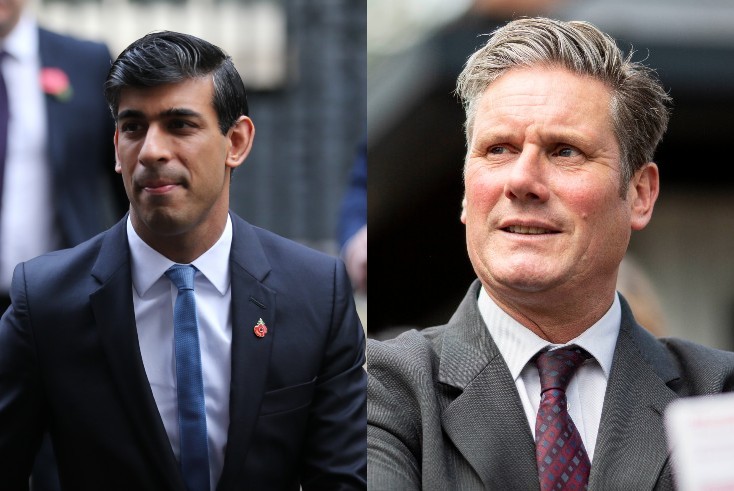Policy versus personality: this year’s false binary

Opinion
The tension between policy and personality seemed to most interest this year’s LEAD audience in politics and in advertising alike.
It’s rare to find ad agencies, media owners, their clients and even Britain’s policymakers pulling in the same direction, but that elusive Yankee bet finally landed at this week’s LEAD Summit.
In part, that’s because our industry trade bodies have (finally) got their ducks in a row: the Advertising Association, ISBA and the IPA co-hosting the event for the first time as a tripartite.
In part it’s also because both the incumbent Conservative Government (and Secretary of State for DCMS, Michelle Donelan) and the Labour opposition (and Shadow Secretary, Lucy Powell) are congregating around both the electoral and advertising policy middle ground.
And in part — albeit largely unspoken — it’s because the advertising industry’s problems and opportunities increasingly demand concerted collective action around trust, online safety, skills shortages and the like.
A safer pair of hands
LEAD’s unique selling point is its convening power as a stage for our politicians and industry leaders to share… if not at the same time, more’s the shame.
Against the odds, perhaps, it was the political class (and indeed our host, the BBC’s Nina Hossain) who boasted the better soundbites than their advertising peers.
Describing the UK’s booming creative economy and its advertising industry as “the European capital of advertising” (whoop! Europe!), Michelle Donelan explained how she had re-imagined the DCMS for her colleagues as “The Department of Future Jobs”. The kind of sleight of hand an ad exec would admire.
Lucy Powell — actually in the room, rather than on video link, for extra points — described how Labour under Sir Keir would “back creative industries to the hilt”, reversing the damaging curriculum squeeze in our schools and encouraging digital skills while challenging the “accumulation of (digital) power into fewer and fewer hands.”
Given all its other challenges, the UK advertising industry needs to operate in the context of at least a predictable policy framework, if not necessarily a benign one. After a year in which Channel 4 was going to be privatised, and then wasn’t — and in which advertisers were going to be encouraged to shift their ad budgets into price-cutting instead, and then weren’t — both the Conservative incumbent and Labour insurgent looked like they would provide a safer pair of hands than a certain Ms. Dorries.
‘A choice between two cheese and pickle sandwiches’
Talk TV’s Political Editor Kate McCann was next up, Jelly Babies at the ready lest she faint as she had done in the company of the “pub quiz PM” Liz Truss last year. Surveying the UK’s respective party leaders — and the choice it looks like we will be asked to make in a year or so — her speech might well have been titled “The (Welcome?) Return of Boring Politics.”
Pulling no punches on Rishi’s soft treatment of Nadhim Zahawi and of Keir Starmer’s awkwardness on the topic of, er, women, McCann painted a vivid picture of the electoral choice that faces us: between two capable men who lack sparkle. Or, in Nina Hossain’s winning words: “a choice between two cheese and pickle sandwiches.”
Personality, McCann seemed to be saying, will likely serve to blunt any policy differences between the two… or at least the enthusiasm with which we might exercise our vote.
“Pebble dash semi-” Sir Keir might well get across the line, if only because there remains a whiff of chaos about the Conservative Party “no matter how much Lynx Africa Rishi Sunak sprays”.
And it was that tension between policy and personality — or rather the relative importance of each — that seemed to most interest the LEAD audience.
In part because there’s an apparent (perhaps even overdue) swing towards competent policymakers rather than political ‘personalities’ in the electorate at large. But in part also I suspect because many of us wrestle professionally with our version of the same conundrum.
In short, what matters most: policy (our course of action) or personality (our character)?
‘And’ beats ‘or’
Reducing our field of vision to advertising, we might expect to find different answers across the big tent of brand-owners, media owners and agencies.
Strategists of all stripes might lionise ‘policy’, while creatives cleave to ‘personality’. But the true smarts in our business have always backed the genius of the ‘and’ rather than the tyranny of the ‘or’. It’s not just that both matter, though of course they do, but that the artful or indeed fortunate combination of policy and personality is a superlative force that drives superior outcomes.
The IPA President Julian Douglas shared two fine examples from last year’s IPA Effectiveness Awards that prove just that.
Cadbury’s course of action was its time-honoured spirit of generosity, its character revealed by emotive broadcast advertising execution. McDonalds has long adhered to a consistent, everyman course of action, its ‘confidently humble’ brand character most recently brought to life by Edgar Wright’s “raised eyebrows” commercial (an ad, incidentally, that features no product but still had Nina Hossain drooling: “I’m standing here craving a filet-o-fish. It really works, that’s really bad…”).
Returning to the top, it seems inescapably true that “‘and’ beats ‘or'” is the case in politics also.
I’m old enough to have witnessed two seismic changes in the British political landscape: the Thatcher years and the Blair years. Pulling in dramatically different directions, yes, but with this much in common: clear courses of action energised, carried and even shorthanded by the character of the leaders in question.
Like most UK citizens, as we face into 2023 I’m hopeful that a new and more effective era of politics lies ahead, if only because our problems as a nation seem so intractable currently.
Closer to home, I’ll settle for an industry that’s chock-full of players setting a noble course of action and going about their respective missions with a dollop of charisma. ‘Policy versus personality’ is a false binary in our business, just as it is in politics. It’s the two, working in lockstep, that yield the biggest wins.
 Laurence Green is one of the UK’s most renowned advertising strategists and creative leaders. He was co-founder of the agencies Fallon London and 101. He is now an independent adviser to creative businesses and writes monthly for The Media Leader.
Laurence Green is one of the UK’s most renowned advertising strategists and creative leaders. He was co-founder of the agencies Fallon London and 101. He is now an independent adviser to creative businesses and writes monthly for The Media Leader.




